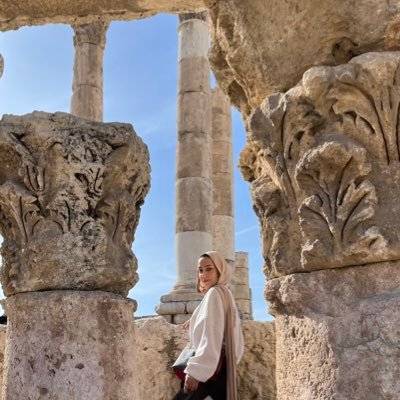What: Algeria’s War of Independence from France
When: 1 November 1954 to 5 July 1962
Where: Algeria
What Happened?
On 1 November 1954, the National Liberation Front (FLN) began armed attacks on the French government and military bases across Algeria calling for all Algerians to support the fight for full independence. The FLN began with five-members before spreading as a nationalistic movement.
The FLN wanted to gain the support of the local population by first circulating nationalistic ambitions amongst the population whom they wanted to disassociate from the French government. They then wanted to establish an alternative system of governance that would be able to take over power once their independence was gained.
The French responded in full force in the hopes of quashing the insurgency before it gained any influence. However they never took the FLN’s threat, a fact the movement used to its advantage.
The founders of the FLN
- Mostefa Ben Boulaïd
- Larbi Ben M’hidi
- Rabah Bitat
- Mohamed Boudiaf
- Mourad Didouche
The severity of the violence used by the French against the Algerian insurgents including torture and executions not only alienated empathetic Algerians but also international support for France’s colonial standing in Algeria.
By 1958, France’s days in Algeria were numbered and it began debating its withdrawal. A new referendum for Algeria’s self-determination was drawn up and six million Algerians voted for an Algerienne Algerie.
General Charles De Gaulle became president in 1959 and began to negotiate the end to the war with France maintaining control of Algeria, though greater autonomy would be given to it, a clause FLN refused.
The Evian Accords, initiated in 1962, brought an end to the war. The violence of the war was unprecedented: around 1.5 million Algerians and 25,000 French people died in the seven and half year conflict that saw untold violence from both sides.
What Happened Next?
The FLN would become Algeria’s first socialist political party until the riots of Black October in 1988 where constitutional reforms would introduce a multi-party system. This would lead to further violence when the Islamic Salvation Front (FIS) won the first round of elections in 1992 leading the military to intervene and cancel the elections.
The violence that followed led to 10 years of civil war between Islamist groups and the Algerian army. Some 200,000 Algerians perished in the war.
The FLN continues to be Algeria’s largest party with many of the country’s revolutionary leaders maintaining power. Algeria’s current President, 79-year-old Abdelaziz Bouteflika, stems from the group and has won four terms since 1999. He remains Algeria’s longest serving president since Houari Boumediene.


![2016_11_1-a-parade-held-during-the-62nd-anniversary-of-algerian-war-of-independence-in-algiers-algeria-1 A parade held during the 62nd anniversary of Algerian war of independence in Algiers, Algeria on November 1, 2016 [Bechir Ramzy/Anadolu]](https://i0.wp.com/www.middleeastmonitor.com/wp-content/uploads/2016/11/2016_11_1-A-parade-held-during-the-62nd-anniversary-of-Algerian-war-of-independence-in-Algiers-Algeria-1.jpg?w=610&h=407&ssl=1)
![2016_11_1-a-parade-held-during-the-62nd-anniversary-of-algerian-war-of-independence-in-algiers-algeria-2 A parade held during the 62nd anniversary of Algerian war of independence in Algiers, Algeria on November 1, 2016 [Bechir Ramzy/Anadolu]](https://i0.wp.com/www.middleeastmonitor.com/wp-content/uploads/2016/11/2016_11_1-A-parade-held-during-the-62nd-anniversary-of-Algerian-war-of-independence-in-Algiers-Algeria-2.jpg?w=302&h=202&ssl=1)
![2016_11_1-a-parade-held-during-the-62nd-anniversary-of-algerian-war-of-independence-in-algiers-algeria-3 A parade held during the 62nd anniversary of Algerian war of independence in Algiers, Algeria on November 1, 2016 [Bechir Ramzy/Anadolu]](https://i0.wp.com/www.middleeastmonitor.com/wp-content/uploads/2016/11/2016_11_1-A-parade-held-during-the-62nd-anniversary-of-Algerian-war-of-independence-in-Algiers-Algeria-3.jpg?w=302&h=201&ssl=1)
![2016_11_1-a-parade-held-during-the-62nd-anniversary-of-algerian-war-of-independence-in-algiers-algeria-4 A parade held during the 62nd anniversary of Algerian war of independence in Algiers, Algeria on November 1, 2016 [Bechir Ramzy/Anadolu]](https://i0.wp.com/www.middleeastmonitor.com/wp-content/uploads/2016/11/2016_11_1-A-parade-held-during-the-62nd-anniversary-of-Algerian-war-of-independence-in-Algiers-Algeria-4.jpg?w=303&h=202&ssl=1)
![2016_11_1-a-parade-held-during-the-62nd-anniversary-of-algerian-war-of-independence-in-algiers-algeria-5 A parade held during the 62nd anniversary of Algerian war of independence in Algiers, Algeria on November 1, 2016 [Bechir Ramzy/Anadolu]](https://i0.wp.com/www.middleeastmonitor.com/wp-content/uploads/2016/11/2016_11_1-A-parade-held-during-the-62nd-anniversary-of-Algerian-war-of-independence-in-Algiers-Algeria-5.jpg?w=303&h=202&ssl=1)
![2016_11_1-a-parade-held-during-the-62nd-anniversary-of-algerian-war-of-independence-in-algiers-algeria-6 A parade held during the 62nd anniversary of Algerian war of independence in Algiers, Algeria on November 1, 2016 [Bechir Ramzy/Anadolu]](https://i0.wp.com/www.middleeastmonitor.com/wp-content/uploads/2016/11/2016_11_1-A-parade-held-during-the-62nd-anniversary-of-Algerian-war-of-independence-in-Algiers-Algeria-6.jpg?w=302&h=202&ssl=1)
![2016_11_1-a-parade-held-during-the-62nd-anniversary-of-algerian-war-of-independence-in-algiers-algeria-7 A parade held during the 62nd anniversary of Algerian war of independence in Algiers, Algeria on November 1, 2016 [Bechir Ramzy/Anadolu]](https://i0.wp.com/www.middleeastmonitor.com/wp-content/uploads/2016/11/2016_11_1-A-parade-held-during-the-62nd-anniversary-of-Algerian-war-of-independence-in-Algiers-Algeria-7.jpg?w=610&h=407&ssl=1)
![2016_11_1-a-parade-held-during-the-62nd-anniversary-of-algerian-war-of-independence-in-algiers-algeria-8 A parade held during the 62nd anniversary of Algerian war of independence in Algiers, Algeria on November 1, 2016 [Bechir Ramzy/Anadolu]](https://i0.wp.com/www.middleeastmonitor.com/wp-content/uploads/2016/11/2016_11_1-A-parade-held-during-the-62nd-anniversary-of-Algerian-war-of-independence-in-Algiers-Algeria-8.jpg?w=302&h=202&ssl=1)
![2016_11_1-a-parade-held-during-the-62nd-anniversary-of-algerian-war-of-independence-in-algiers-algeria-9 A parade held during the 62nd anniversary of Algerian war of independence in Algiers, Algeria on November 1, 2016 [Bechir Ramzy/Anadolu]](https://i0.wp.com/www.middleeastmonitor.com/wp-content/uploads/2016/11/2016_11_1-A-parade-held-during-the-62nd-anniversary-of-Algerian-war-of-independence-in-Algiers-Algeria-9.jpg?w=302&h=201&ssl=1)
![2016_11_1-a-parade-held-during-the-62nd-anniversary-of-algerian-war-of-independence-in-algiers-algeria-10 A parade held during the 62nd anniversary of Algerian war of independence in Algiers, Algeria on November 1, 2016 [Bechir Ramzy/Anadolu]](https://i0.wp.com/www.middleeastmonitor.com/wp-content/uploads/2016/11/2016_11_1-A-parade-held-during-the-62nd-anniversary-of-Algerian-war-of-independence-in-Algiers-Algeria-10.jpg?w=303&h=202&ssl=1)
![2016_11_1-a-parade-held-during-the-62nd-anniversary-of-algerian-war-of-independence-in-algiers-algeria-11 A parade held during the 62nd anniversary of Algerian war of independence in Algiers, Algeria on November 1, 2016 [Bechir Ramzy/Anadolu]](https://i0.wp.com/www.middleeastmonitor.com/wp-content/uploads/2016/11/2016_11_1-A-parade-held-during-the-62nd-anniversary-of-Algerian-war-of-independence-in-Algiers-Algeria-11.jpg?w=303&h=202&ssl=1)
![2016_11_1-a-parade-held-during-the-62nd-anniversary-of-algerian-war-of-independence-in-algiers-algeria-12 A parade held during the 62nd anniversary of Algerian war of independence in Algiers, Algeria on November 1, 2016 [Bechir Ramzy/Anadolu]](https://i0.wp.com/www.middleeastmonitor.com/wp-content/uploads/2016/11/2016_11_1-A-parade-held-during-the-62nd-anniversary-of-Algerian-war-of-independence-in-Algiers-Algeria-12.jpg?w=302&h=202&ssl=1)
![2016_11_1-a-parade-held-during-the-62nd-anniversary-of-algerian-war-of-independence-in-algiers-algeria-13 A parade held during the 62nd anniversary of Algerian war of independence in Algiers, Algeria on November 1, 2016 [Bechir Ramzy/Anadolu]](https://i0.wp.com/www.middleeastmonitor.com/wp-content/uploads/2016/11/2016_11_1-A-parade-held-during-the-62nd-anniversary-of-Algerian-war-of-independence-in-Algiers-Algeria-13.jpg?w=226&h=151&ssl=1)
![2016_11_1-a-parade-held-during-the-62nd-anniversary-of-algerian-war-of-independence-in-algiers-algeria-14 A parade held during the 62nd anniversary of Algerian war of independence in Algiers, Algeria on November 1, 2016 [Bechir Ramzy/Anadolu]](https://i0.wp.com/www.middleeastmonitor.com/wp-content/uploads/2016/11/2016_11_1-A-parade-held-during-the-62nd-anniversary-of-Algerian-war-of-independence-in-Algiers-Algeria-14.jpg?w=226&h=151&ssl=1)
![2016_11_1-a-parade-held-during-the-62nd-anniversary-of-algerian-war-of-independence-in-algiers-algeria-15 A parade held during the 62nd anniversary of Algerian war of independence in Algiers, Algeria on November 1, 2016 [Bechir Ramzy/Anadolu]](https://i0.wp.com/www.middleeastmonitor.com/wp-content/uploads/2016/11/2016_11_1-A-parade-held-during-the-62nd-anniversary-of-Algerian-war-of-independence-in-Algiers-Algeria-15.jpg?w=226&h=151&ssl=1)
![2016_11_1-a-parade-held-during-the-62nd-anniversary-of-algerian-war-of-independence-in-algiers-algeria-16 A parade held during the 62nd anniversary of Algerian war of independence in Algiers, Algeria on November 1, 2016 [Bechir Ramzy/Anadolu]](https://i0.wp.com/www.middleeastmonitor.com/wp-content/uploads/2016/11/2016_11_1-A-parade-held-during-the-62nd-anniversary-of-Algerian-war-of-independence-in-Algiers-Algeria-16.jpg?w=226&h=151&ssl=1)






